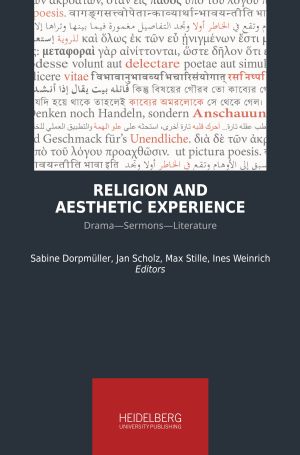How to Cite
License (Chapter)

This work is licensed under a Creative Commons Attribution-ShareAlike 4.0 International License.
Identifiers (Book)
Published
Religion into Literature: A close reading of ʿAbd al-Ḥakīm Qāsim’s novel Ayyām al-insān as-sabʿa (The Seven Days of Man)
Abstract Modern Egyptian literature was secular from its beginnings, which can be traced to the beginnings of the twentieth century. Contrary to most of the other authors, ʿAbd al-Ḥakīm Qāsim came from a rural community with a vibrant Sufi brotherhood tradition. And yet, he too made his increasing distance from the brotherhood the main subject of his novel Ayyām al-insān as-sabʿa (The Seven Days of Man). The paper examines the religious-aesthetic dimensions of Sufism in this novel, since Sufism initially played the role of a great educator before it was successively replaced by more rational means of conceiving the world. The aesthetic dimensions of the novel, however, blur this clear-cut distinction between religion and enlightenment. Ayyām al-insān as-sabʿa is, perhaps, the last example of a “Bildungsroman” in modern Egyptian literature, but at the same time, it is also an elegy for a lost world. The ambiguity starts with the title’s reference to “seven days,” which could either refer to the creation of the world by God or to man’s own creation of his world. The end is likewise ambiguous, since the (Sufi) “way” (ṭarīq) leads the main protagonist back to his roots without offering him any kind of redemption. Shall we thus conclude that religion, by the natural laws of modern life, turns into literature, but that literature is nothing without religion, which is otherwise and outside literature irretrievably lost?






